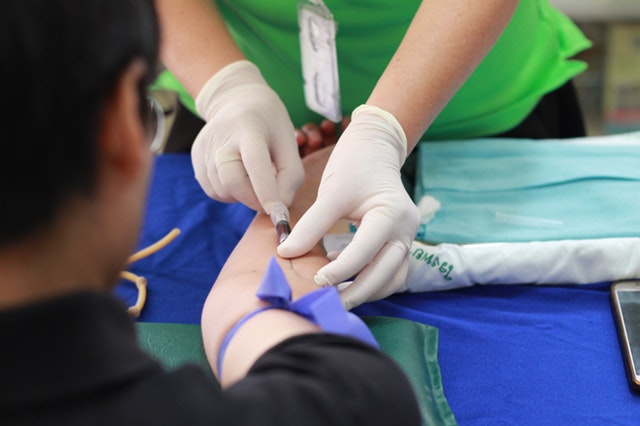As the science behind HIV early detection continues to advance, Australia’s 12-month sexual intercourse deferral period for homosexual men stays the same.
Over 20 years ago, Australia began implementing a 12-month sexual intercourse deferral period in order for homosexual men to be eligible to donate blood. This means that men who have engaged in male-to-male intercourse, protected or unprotected, are precluded from donating blood.
Since then, scientific research into HIV detection has progressed and experts say that a safe window to allow for detection after exposure could be as little as two weeks.
While statistics say one in three Australians will need a blood transfusion at some point in our lives, only one in 30 Australians will donate blood, leaving some questioning the criteria that restricts homosexual men from donating.
Marcus Ravenwood, a nurse, is one of those people.
“The first time I attempted to donate blood and was rejected due to sexual preference and activity I felt shocked. I felt made to feel as if I was a dirty, viral contaminant risk and degraded,” he told upstart.
The Red Cross has affirmed that their goal is always to ensure the health and wellbeing of donors and recipients. This will be their first consideration when they hand down their sexual activity deferral review to the Therapeutic Goods Administration (TGA).
The TGA is the body responsible for regulating therapeutic goods such as medicines, vaccines, blood and blood products, as part of the Australian Government Department of Health.
However, the Australian Federation of AIDS Organisations has said that the current deferral period needlessly excludes too many people from blood donation, given it is based on outdated evidence.
“The 12-month deferral period for men who have sex with men is excessive and inconsistent with expert evidence,” a spokesperson told Upstart. “We need a sensible approach that ensures the safety of blood supply, with the largest pool of possible donors.”
John Kaldor, a professor for the Kirby Institute, told the ABC that HIV infection can now be detected within 10 days of exposure.
Further research published by the Kirby Institute has also shown that HIV figures in homosexual men are at an 18-year low, while HIV diagnoses in heterosexual men are on the rise.
Mr Ravenwood believes that the donation criteria should be amended to a more inclusive approach, given that heterosexual individuals and couples are also at risk of transmission.
“Based on new screening capabilities I personally believe that the wait time between sex (safe and otherwise) should be one month for all individuals,” he said.
In 2012, the TGA rejected a review by the Red Cross to amend the deferral period to six months, claiming it would “introduce an unacceptable risk to donor recipients”.
The TGA stated that as the reasons for the deferral period are scientifically defensible, it cannot be considered discriminatory.
Some countries however, are changing their policies, including Canada who decreased their deferral period from 12 months to three.
A research article published by BMC Public Health looked at the perspectives of gay and bisexual men regarding Canada’s recent amendment. The majority of participants advocated for no deferral period but rather, a policy that was the same for everyone and looked at individual risk rather than blanket exclusion.
This is the approach adopted by a number of countries, including Poland, Spain and Italy who no longer have a deferral period in place and assess donors on individual lifestyle habits.
In Italy, blood donors are categorised as either low-risk or high-risk based on a number of factors such as whether the donor is in a monogamous relationship, has multiple sexual partners, or is currently taking the HIV prevention drug PrEP.
Italy’s transfusion-based transferal of HIV has not increased since scrapping their deferral back in 2001.
Ravenwood told Upstart he feels like Australia was falling behind the rest of the world with its current deferral period and that a more tailored approach would be beneficial for Australia’s health system.
“Turning down healthy, clean and willing individuals is counter-productive.”
“Further advancements in not only detection but prevention and vaccination could wipe out the issue of shortage of viable blood and donors,” he said.
Article: Madeline Donis is a first-year Bachelor of Media and Communications (Journalism) student at La Trobe University. You can follow her on Twitter @maddydonis
Photo: Person getting his blood check By: Pranidchakan Boonrom Available: Here and used under a Creative Commons Attribution. The image has not been modified.







